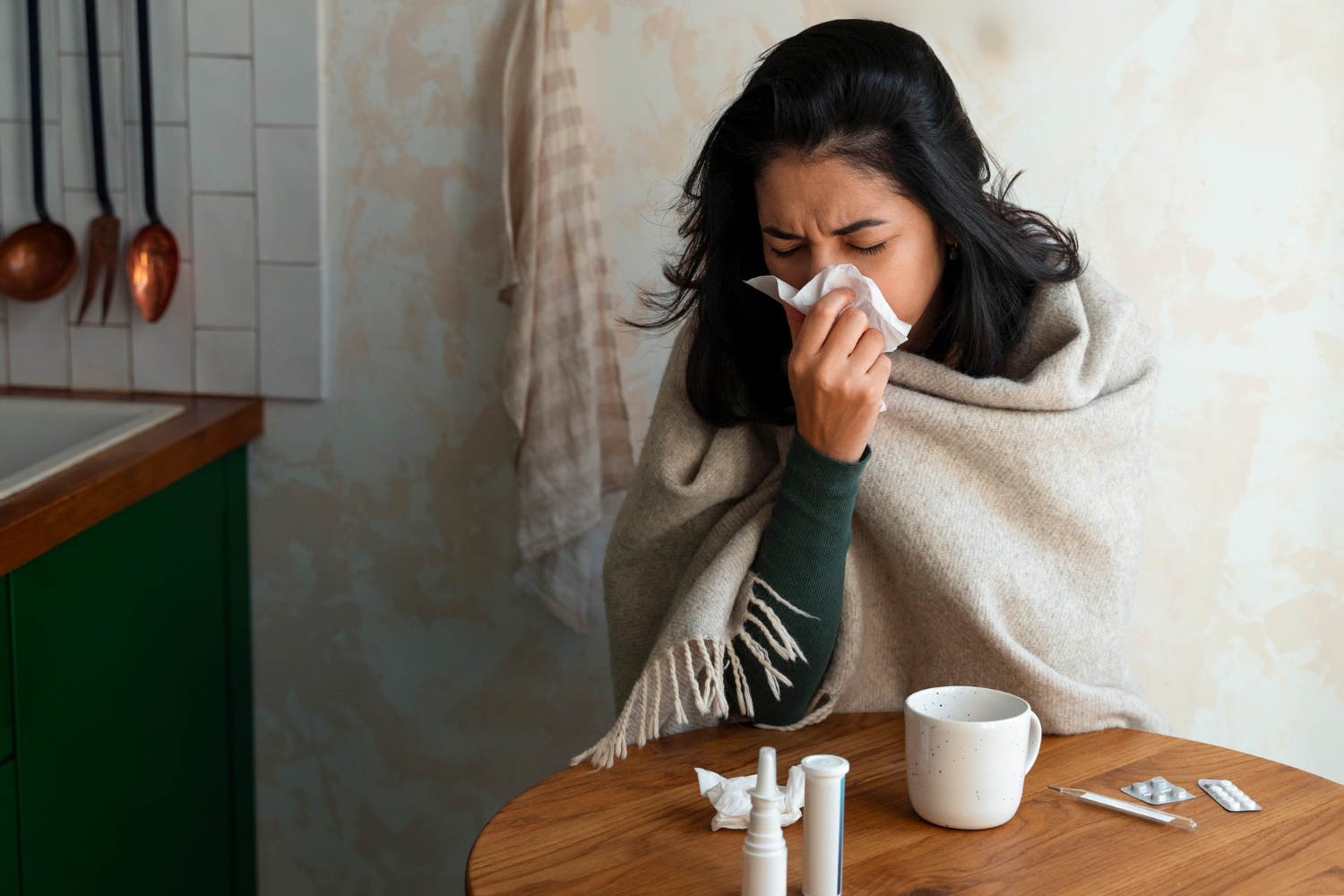

The monsoon season, while refreshing, also brings an increased risk of infections due to the humid environment. Ayurveda provides natural, effective solutions to prevent infections and maintain good health throughout the rainy season. In this blog, we will explore Ayurvedic methods to boost immunity and prevent common monsoon-related infections.
Why Are Infections More Common During the Monsoon?
The combination of dampness and humidity during the monsoon creates an ideal breeding ground for bacteria and viruses. The weakened immunity during this time makes the body more susceptible to infections such as colds, flu, and stomach bugs.
Common Monsoon Infections:
- Respiratory infections
- Waterborne diseases like cholera and dysentery
- Skin infections like fungal rashes
Ayurvedic Herbs to Prevent Infections
Ayurveda emphasizes the use of herbs that support the immune system and protect the body from infections.
Tulsi (Holy Basil):Tulsi is one of the most revered herbs in Ayurveda, known for its powerful antimicrobial properties. It strengthens the immune system, fights bacterial infections, and helps purify the air. Drinking Tulsi tea or adding it to your meals can help protect against monsoon infections.
Ginger:Ginger is another powerful herb in Ayurveda that can boost immunity. It has antiviral and antibacterial properties that help combat infections and inflammation. Ginger can be consumed as tea or added to soups to keep your immune system strong.
Guduchi (Tinospora Cordifolia):Guduchi is known for its ability to enhance the body's resistance to infections. It supports the immune system, helps detoxify the body, and is particularly effective in fighting off respiratory infections. Guduchi can be consumed as a powder, in herbal tea, or in capsule form.
Neem:Neem has strong antiseptic properties and is commonly used in Ayurvedic medicine to treat skin infections. Neem’s antibacterial and antiviral properties help protect against infections that are common during the rainy season. Neem leaves can be used in baths to cleanse the body or consumed as a powder
Ayurvedic Lifestyle Tips to Prevent Infections
Boost Immunity with Panchakarma: Panchakarma is a purification therapy in Ayurveda that removes toxins from the body, strengthens the immune system, and improves overall health. Regular Panchakarma treatments during the monsoon can help rejuvenate the body and make it more resistant to infections.
Keep Your Environment Dry: Humidity is a major contributor to monsoon infections. Keeping your living space dry and well-ventilated helps prevent the growth of mold, bacteria, and viruses. Use dehumidifiers and keep windows open to allow fresh air to circulate.
Maintain Proper Hygiene: Regular handwashing and maintaining personal hygiene are essential during the monsoon. Ayurveda advises using herbal soaps and oils to cleanse the skin and prevent fungal infections that are common during this season.
Drink Purified Water: Waterborne diseases are more common during the rainy season, and it’s essential to drink purified water. Boiling water and letting it cool before drinking ensures that any harmful microorganisms are eliminated
Conclusion
Ayurveda provides a comprehensive approach to preventing infections during the monsoon. By using immunity-boosting herbs like Tulsi, Ginger, Guduchi, and Neem, along with a clean and dry living environment, you can protect your body from seasonal infections.Additionally, incorporating Panchakarma treatments and maintaining proper hygiene will help strengthen the immune system and keep infections at bay.
Book now

